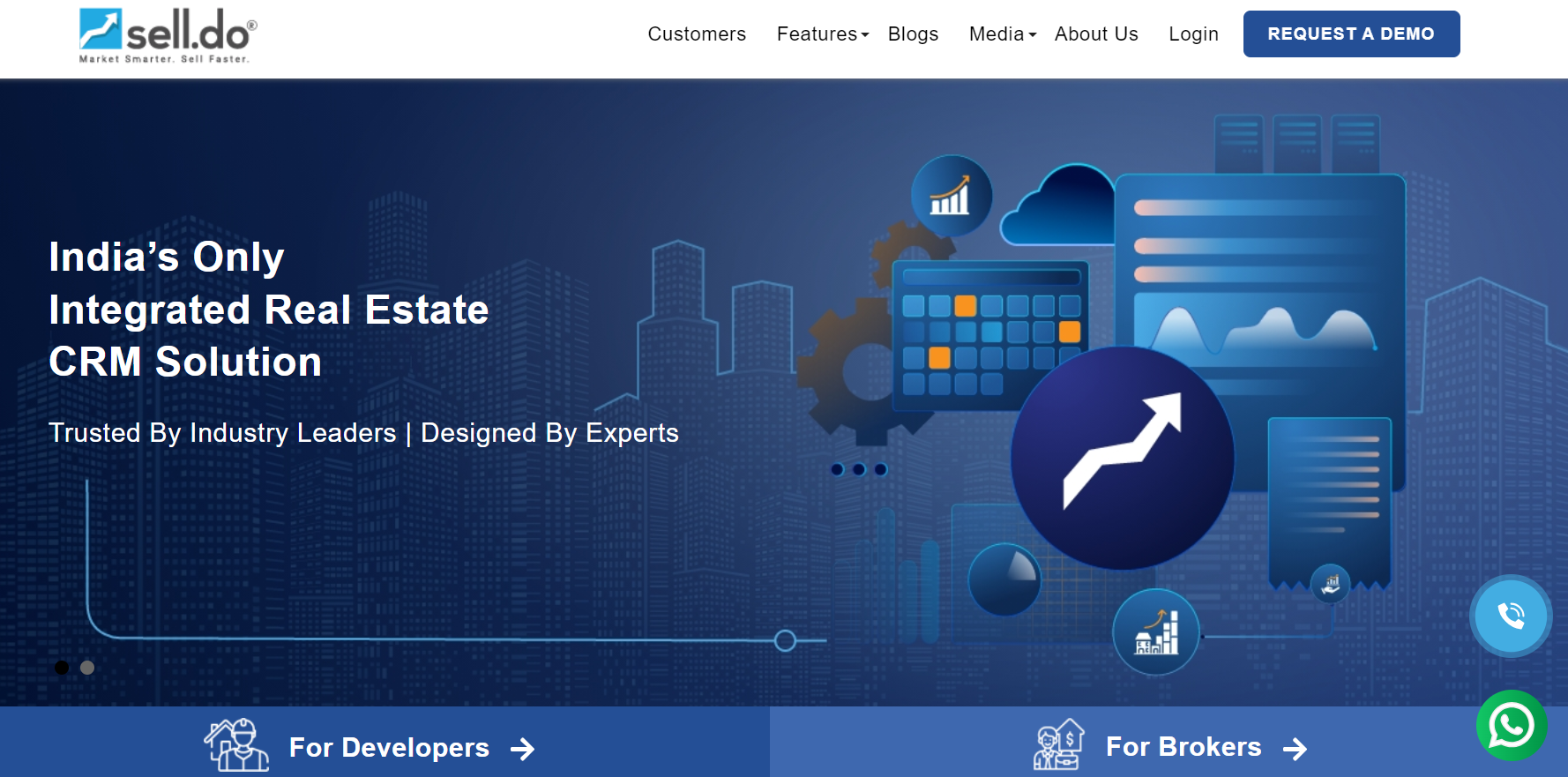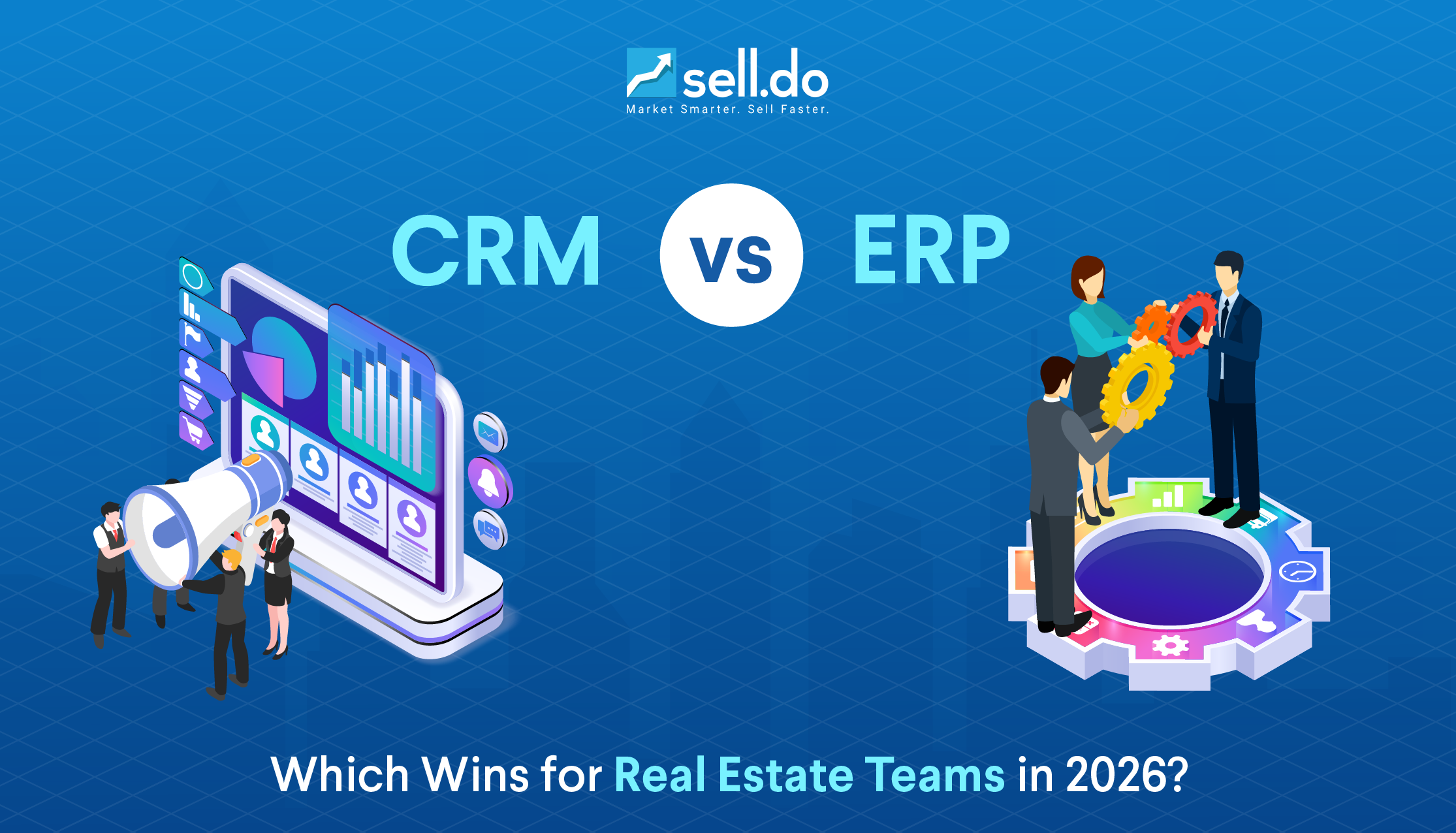When you're in the thick of real estate transactions—office spaces, retail outlets, or entire commercial buildings—one question often lingers in the background: how do brokers actually earn from all this? More specifically, how much do commercial real estate brokers make in commission?
If you're a developer, property owner, or brokerage firm trying to make sense of the cost behind the expertise, you're not alone. Commission structures in commercial real estate aren’t always straightforward, and they often vary based on deal size, location, lease terms, and negotiation power. But understanding how they work can give you an edge, helping you budget better, evaluate partnerships, and ensure you're paying for value, not just a name.
In this blog, we break down everything you need to know about commercial real estate broker commission rates—from how they’re calculated to what factors influence them. So, let’s get started!
Overview of Commercial Real Estate Commission
Commercial real estate commission refers to the fee brokers earn for facilitating property transactions, usually calculated as a percentage of the deal value. It plays a central role in how brokers are compensated, especially in high-value commercial deals like office leases, retail spaces, or industrial properties. Commercial deals are far more flexible than residential real estate, where commission structures are relatively standardized.
The way commission is calculated can vary significantly, not just by deal type, but also by region. For example, brokers in metro cities like Mumbai or Bengaluru may earn higher percentages due to premium property values and complex transactions. In contrast, rates in Tier 2 cities tend to be lower and more straightforward.
If you're asking how much do commercial real estate brokers make in commission, the answer depends on location, transaction size, and the specific terms negotiated between parties. Residential commissions typically follow a fixed percentage model, but commercial deals leave more room for customization.
Now let’s look at how these commissions are actually structured and calculated in the Indian market.
You can also check our blog: Steps to Become a Successful Real Estate Agent: Tips for Success.
Understanding Commission Structures

Commission structures in commercial real estate are rarely one-size-fits-all, especially in India, where regional practices, property types, and deal complexities play a major role. Commissions are typically calculated as a percentage of the transaction value, whether it’s a sale or lease. For outright sales, this percentage is applied to the final sale price; for leases, it’s often based on total rental value over the lease term or a portion of the annual rent.
Most commercial deals in India see commission rates fall between 3% to 6%, though high-ticket properties or long-term leases can command more flexible rates. Property owners, not buyers or tenants, are usually the ones responsible for paying commission, though in some lease deals, especially in metro areas, tenants may also contribute.
Here are the key factors that influence how much a commercial real estate broker makes in commission:
- Location of the property: Brokers in Mumbai, Delhi NCR, or Bengaluru may charge higher commissions due to higher property values and longer closing cycles.
- Property type and value: Commission percentages tend to decrease as the property value increases. A ₹10 crore deal may carry a lower rate than a ₹1 crore deal.
- Deal structure: Straight sales usually offer fixed commissions, while leases may offer recurring payouts or lump-sum percentages based on total lease value.
- Lease tenure and rent escalation clauses: Longer leases with annual rent increases can increase the broker's earnings, especially when commissions are tied to total lease value.
- Exclusivity of engagement: Brokers with exclusive selling rights often negotiate higher commissions, while open listings may come with more modest rates.
- Brokerage agreement terms: Some developers and agencies have in-house caps or fixed slabs based on internal policies or existing vendor relationships.
Commission structures might seem fixed at first glance, but in reality, several factors influence the final rate a broker earns, often in ways that aren't immediately obvious. Let’s break down what really drives these variations.
Recommended: How a Channel Partner CRM Can Maximize Real Estate Sales.
Factors Affecting Commission Rates
Commission rates in commercial real estate aren’t fixed—they fluctuate based on a mix of practical, market-driven factors. In India, these variations can be more pronounced due to diverse regional dynamics, property types, and deal expectations. Understanding what influences commission rates can help you set the right expectations and negotiate more confidently.
Key factors that affect how much commercial real estate brokers make in commission include:
- Market conditions: In a strong market with high demand and limited inventory, brokers may charge higher commissions due to faster closures and premium pricing. They may lower rates during slower periods to stay competitive and secure deals.
- Location: Urban hubs like Mumbai, Bengaluru, and Delhi NCR often come with higher commission expectations due to larger deal values and more complex transactions. Smaller cities or towns may see lower rates and simpler structures.
- Type and size of property: Larger or specialized properties—like IT parks, warehouses, or hospitality assets—typically require more effort and domain expertise, justifying higher commissions. Standard office or retail spaces may come with mid-range rates.
- Complexity of the transaction: Deals involving multiple stakeholders, legal issues, or financial structuring (such as joint ventures or long-term leases with profit-sharing) demand more broker involvement and thus command higher fees.
- Broker's involvement and services offered: A broker who provides end-to-end services—market research, legal coordination, documentation, tenant scouting, and post-deal support—will likely charge more than one offering only basic matchmaking.
- Reputation and experience: Established brokers or agencies with a track record of high-value deals often negotiate better commission percentages due to their credibility and network.
- Client relationship and exclusivity: Long-term partnerships or exclusive agreements may come with negotiated rates, performance-based slabs, or bundled service pricing.
- Payment terms and risk: Brokers may increase commission rates when payment terms are delayed or when there’s a higher risk of deal fallout mid-process.
Knowing what influences the total commission is just one part of the picture. How that amount gets divided between the brokerage firm and the individual agent is where things get even more interesting. Let’s take a look at the distribution below.
Also, check our blog for 7 Tips for Successful Collaboration with Real Estate Partners.
Commission Distribution and Brokerage Split
Once a commercial real estate deal closes and the commission is paid, it rarely stays with one person. In India, most brokerage firms follow a commission-sharing model where the main broker or agency distributes earnings to individual agents based on pre-agreed terms. This split depends on the agency structure, the agent’s seniority, and the level of involvement in closing the deal.
While the numbers vary, these are some common commission split models seen across Indian brokerages:
- Entry-level or junior agents often start with a 50/50 split, meaning the agency keeps half the commission while the agent gets the other half.
- Depending on performance or deal volume, experienced or senior agents may negotiate higher shares, ranging from 70/30 to 80/20.
- Up to 90% of the commission might be given to top-performing agents or exclusive dealmakers, especially in boutique firms or performance-based setups.
Some agencies also offer bonuses, fixed retainers, or incentives on top of the commission split, particularly when targeting high-value commercial properties. The exact structure usually depends on how the brokerage is organized—independent firms tend to be more flexible, while larger brokerages may follow fixed tiers.
Also Read: Real Estate Compliance Software for Management and Brokerages.
Now that you know how commissions are shared within a firm, let’s bring the numbers to life with real-world scenarios that show how much brokers and agents actually take home.
Example Commission Calculations
Let’s use real-world scenarios to explain how much a commercial real estate broker or agent actually earns. These simplified examples reflect typical commercial real estate broker commission rates and structures in Indian markets. From lease tenure to rent value and brokerage splits, several factors shape what ends up in an agent’s hands after a deal closes.
Example 1: Lease Deal – Office Space in Pune
- Monthly rent: ₹2,00,000
- Lease tenure: 3 years (36 months)
- Total lease value: ₹72,00,000
- Commission rate: 2 months' rent = ₹4,00,000
If the brokerage agreement includes a 70/30 split, the agent would earn ₹2,80,000 while the brokerage firm retains ₹1,20,000.
Example 2: Lease Deal – Retail Space in Bengaluru (High-traffic Area)
- Monthly rent: ₹5,00,000
- Lease tenure: 5 years (60 months)
- Total lease value: ₹3 crore
- Commission: 4% of total lease value = ₹12,00,000
In a 60/40 split, the agent receives ₹7,20,000 and the firm keeps ₹4,80,000. If the agent sourced the client and closed the deal solo, they might negotiate a higher share or bonus. These scenarios show that agent earnings vary greatly based on the commercial real estate broker commission percentage, deal value, and internal brokerage arrangements.
Even a small percentage can translate into significant payouts in metros where rental values are high and deal sizes are larger, especially for agents working on high-volume or long-term commercial leases.
Next, let’s look at the typical timelines for commission payments.
Timing of Commission Payments
Commercial real estate broker commission is typically paid within 30 days after a sale or lease agreement is finalized and registered. However, timelines can vary depending on the nature of the deal and the parties involved.
Some developers or property owners prefer split payments, releasing 50% on signing and the rest after possession or milestone completion. In high-value lease transactions, especially in metro cities, payments may also be linked to rent commencement or security deposit clearance. On the other hand, smaller firms or direct landlord deals may offer immediate payouts once documentation is completed.
While there’s no one-size-fits-all rule, clear terms agreed upfront help avoid delays and disputes in commission disbursement.
Negotiating and Understanding Commission Rates
Negotiating commission is common in commercial real estate, especially when deal sizes or service levels vary. A smart way to approach it is by understanding the commercial real estate broker commission structure upfront—what’s standard in the market, what services are included, and what value the broker brings.
Clients often negotiate based on deal complexity, expected timeline, or exclusivity. Open communication about expectations, deliverables, and timelines helps both parties stay aligned. Transparency not only builds trust but also ensures there are no surprises when it’s time to settle commissions.
Recommended: Top Real Estate Social Network Platforms and Their Strategies.
But as your portfolio and network grow, manually tracking commissions and payouts across spreadsheets can become inefficient and prone to costly errors. That’s where a dedicated real estate CRM like Sell.Do steps in offering automated, transparent, and accurate commission management for both developers and brokers.
Why Real Estate Professionals Should Use Sell.Do?

Sell.Do isn’t your typical CRM—it’s a dedicated real estate CRM designed to handle the unique workflows of the property sector. While most CRMs focus only on customer communication, Sell.Do goes a step further. It bridges the gap between developers, channel partners, brokers, agents, and customers by enabling seamless collaboration, smart inventory control, and transparent commission tracking—all in one platform. It’s built to support not just your internal sales team, but also your extended sales ecosystem.
So, whether you’re a real estate developer looking to manage a network of channel partners or a broker aiming to boost efficiency, Sell.Do helps streamline the process from onboarding to payout—without the confusion or manual errors.
Key Features of Sell.Do

- Channel Partner Hub: Centralized partner onboarding, real-time performance tracking, and automatic commission calculations ensure transparent and efficient workflows. Automated payouts remove the manual follow-ups.
- Smart Inventory, Negotiation & Pricing Control: Sell.Do offers a 360° inventory view, dynamic pricing based on market demand, and automated unit allocation to avoid double bookings. Brokers and agents can generate instant, approval-backed quotations—making negotiations faster and more reliable.
- Brokerage and Payout Management: Brokers and channel partners benefit from transparent incentive structures. Sell.Do’s tools allow for independent lead sourcing, accurate attribution, and real-time access to incentive calculators and booking details.
- Digital Onboarding & Conflict Management: Onboard new channel partners digitally and give them controlled access to the same tools as your internal sales team. It reduces operational delays and helps prevent lead conflicts and payout disputes.
- Partner Engagement & Loyalty Programs: Build stronger relationships with partners using custom engagement plans and loyalty-based incentive structures. It’s easier to retain high-performing partners when they feel empowered and informed.
- True Online Collaboration: Channel partners get their own dashboards to manage inventory, meetings, and customer interactions—all in real time. It improves responsiveness and frees your team to focus on closing deals.
- Actionable Business Insights: From sales productivity and campaign performance to revenue tracking and process bottlenecks, Sell.Do’s customizable reports deliver insights that help you make smarter decisions.
Sell.Do ensures your brokerage, agency, or development firm runs like a well-oiled machine—aligning internal teams and external partners under one streamlined, data-backed CRM system.
Conclusion
Commercial real estate commissions aren’t one-size-fits-all. They vary based on deal type, location, services offered, and internal brokerage agreements. A clear grasp of these payment structures helps you make smarter choices, avoid misunderstandings, and maximize earnings or payouts.
That said, managing these commissions at scale, especially across multiple partners and deals, can be a major challenge. From tracking payouts and resolving conflicts to ensuring transparency with brokers and agents, real estate professionals often deal with inefficiencies and miscommunication.
Sell.Do can help you with this. Unlike generic CRMs that focus only on customers, Sell.Do is explicitly built for the real estate industry. It allows developers to automate onboarding, manage partner performance, and ensure real-time commission visibility. For brokers and channel partners, it offers the tools and transparency they need to close deals efficiently and get paid accurately.
Let Sell.Do simplify it all, so you can focus on growing your real estate business. Book a Free Demo Now!






Leave a comment
Comments (0)
Be the first one to comment.